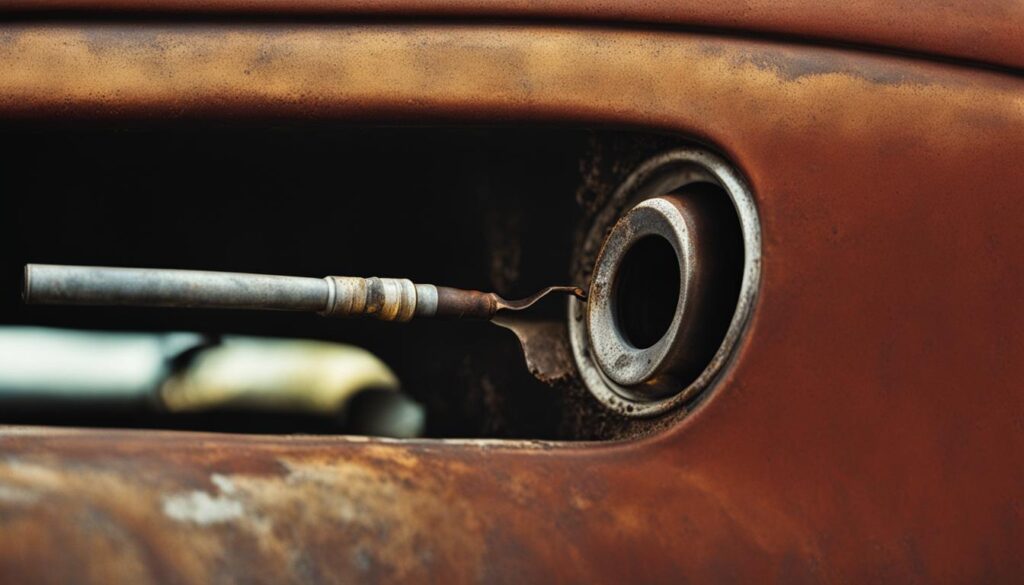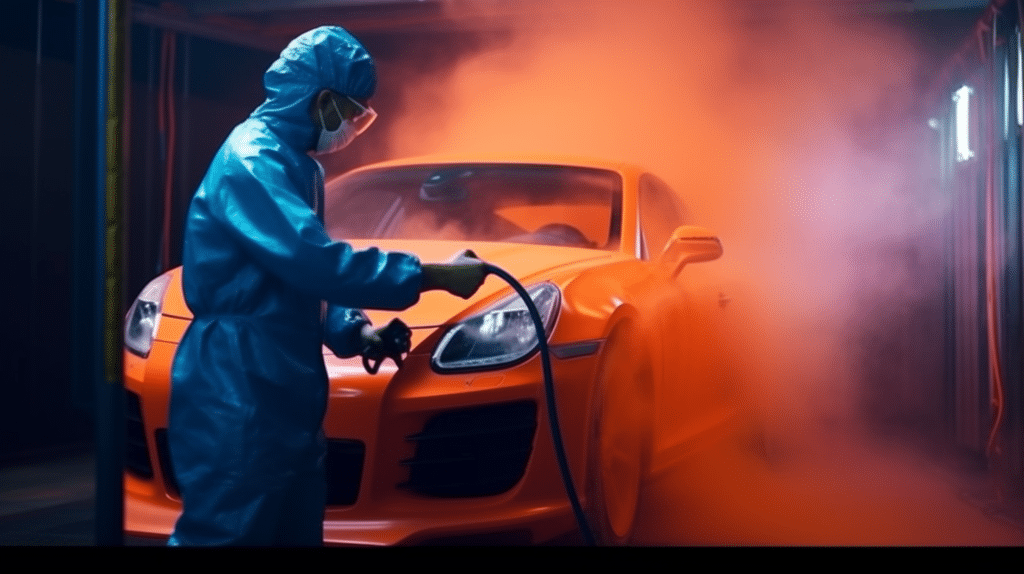Fuel pump issues can lead to significant performance problems in your vehicle. It’s essential to be aware of the early signs of fuel pump failure so you can address the problem promptly. Ignoring these signs can result in breakdowns and costly repairs. Some common signs of fuel pump problems include car stuttering and stumbling, excessive whine from the fuel pump, engine won’t take throttle, car cuts off for no reason, and car won’t start or starts and shuts off.
If you notice any of these symptoms, it’s important to troubleshoot and address the potential fuel pump issue. Quick fixes may involve checking spark plugs, the fuel tank, and the air intake. However, if the problem persists or becomes severe, it may be necessary to consider fuel pump replacement or repair.
Maintaining your fuel system through regular maintenance practices can also prevent fuel pump issues. Keeping your gas tank filled and replacing the fuel filter at recommended intervals are crucial steps in preventing problems with your fuel pump.
Key Takeaways:
- Recognizing the early signs of fuel pump failure can prevent breakdowns and costly repairs.
- Common signs of fuel pump problems include car stuttering, excessive fuel pump noise, difficulty starting, and engine cut-offs.
- Quick fixes may involve checking spark plugs, fuel tank, and air intake, while severe issues may require fuel pump replacement or repair.
- Regular maintenance practices, such as keeping the gas tank filled and replacing the fuel filter, can help prevent fuel pump issues.
- Consulting with a professional mechanic is recommended if you experience any symptoms of fuel pump failure.
Signs and Symptoms of Fuel Pump Failure
Recognizing the early signs of fuel pump failure is crucial for maintaining the performance of your vehicle. Ignoring these signs can lead to breakdowns and unsafe driving conditions. If you notice any of the following symptoms, it is recommended to consult with a professional mechanic immediately:
- Engine Surges: Your vehicle experiences sudden and unexplained increases in engine speed.
- Difficulty Starting Your Vehicle: You have trouble starting your car, and it takes multiple attempts before the engine fires up.
- Loss of Power While Under Pressure: Your vehicle struggles to maintain power and performance when accelerating or climbing steep hills.
- Excessive Whining Sounds from the Fuel Tank: You hear unusual and loud whining noises coming from the area of your fuel tank.
- Poor Fuel Efficiency: Your vehicle’s fuel efficiency decreases significantly, and you notice that you need to refuel more frequently than before.
- Engine Misfire: Your engine runs unevenly, causing vibrations and a lack of smooth operation.
- Stalling at High Temperatures: Your vehicle stalls or shuts off unexpectedly when driving in hot weather or long distances.
- Surges in Vehicle Movement: Your vehicle experiences jerky movements or surges during acceleration or while driving at a constant speed.
- Acceleration Issues: Your vehicle has difficulty accelerating smoothly, and there is a noticeable delay between pressing the gas pedal and actual acceleration.
- Failure to Meet Emission Standards: Your vehicle fails to pass emissions tests, indicating a potential issue with the fuel pump.
These signs and symptoms indicate a failing fuel pump and should not be ignored. Prompt action can prevent further damage and ensure the safety of your vehicle. When faced with fuel pump failure, repair options include fuel pump replacement, fuel pump repair, fuel system cleaning, and regular maintenance. Consulting with a trusted mechanic is essential to diagnose and address the specific issue with your fuel pump.
Conclusion
Fuel pump maintenance, diagnostics, and repair are essential for ensuring the proper functioning and longevity of your vehicle’s fuel system. By recognizing the early signs of fuel pump failure and taking proactive steps, you can prevent potential breakdowns and costly repairs.
Regular maintenance plays a crucial role in preventing fuel pump issues. Keeping your gas tank filled and replacing the fuel filter at recommended intervals can help maintain the cleanliness of the fuel system and prevent clogs that may affect the fuel pump’s performance.
If you experience any symptoms indicating fuel pump failure, such as engine surges, difficulty starting, or poor fuel efficiency, it is important to consult with a professional mechanic for diagnostics and repair. They have the expertise and tools to accurately diagnose the problem and determine whether a fuel pump replacement or repair is necessary.
Addressing fuel pump issues promptly through maintenance and repair measures not only ensures the reliability and safety of your vehicle but also helps you avoid more extensive damage to the fuel system. By prioritizing fuel pump maintenance, diagnostics, and repair, you can keep your vehicle running smoothly and efficiently for years to come.
FAQ
What are the early signs of fuel pump failure?
Some common signs of fuel pump failure include car stuttering and stumbling, excessive whine from the fuel pump, engine won’t take throttle, car cuts off for no reason, and car won’t start or starts and shuts off.
How can I address fuel pump issues before it worsens?
Quick fixes for fuel pump issues may involve checking spark plugs, fuel tank, and air intake. More severe issues may require fuel pump replacement or repair. Regular maintenance, such as keeping the gas tank filled and replacing the fuel filter, can also help prevent fuel pump problems.
What are the signs and symptoms of fuel pump failure?
The signs and symptoms of fuel pump failure include engine surges, difficulty starting your vehicle, loss of power while under pressure, excessive whining sounds from the fuel tank, poor fuel efficiency, engine misfire, stalling at high temperatures, surges in vehicle movement, acceleration issues, and failure to meet emission standards.
Should I consult with a professional mechanic if I experience fuel pump issues?
Yes, if you experience any symptoms of fuel pump failure, it is recommended to consult with a professional mechanic to diagnose and repair the problem. They can provide the necessary expertise and tools to address the issue effectively.
What are the repair options for a bad fuel pump?
Repair options for a bad fuel pump include fuel pump replacement, fuel pump repair, fuel system cleaning, and regular maintenance. The appropriate repair option may depend on the severity of the issue and the recommendations of a professional mechanic.
How can I prevent fuel pump issues?
Regular maintenance, such as keeping the gas tank filled and replacing the fuel filter, can help prevent fuel pump issues. Additionally, avoiding running the fuel tank empty and using high-quality fuel can also contribute to the longevity of the fuel pump.




